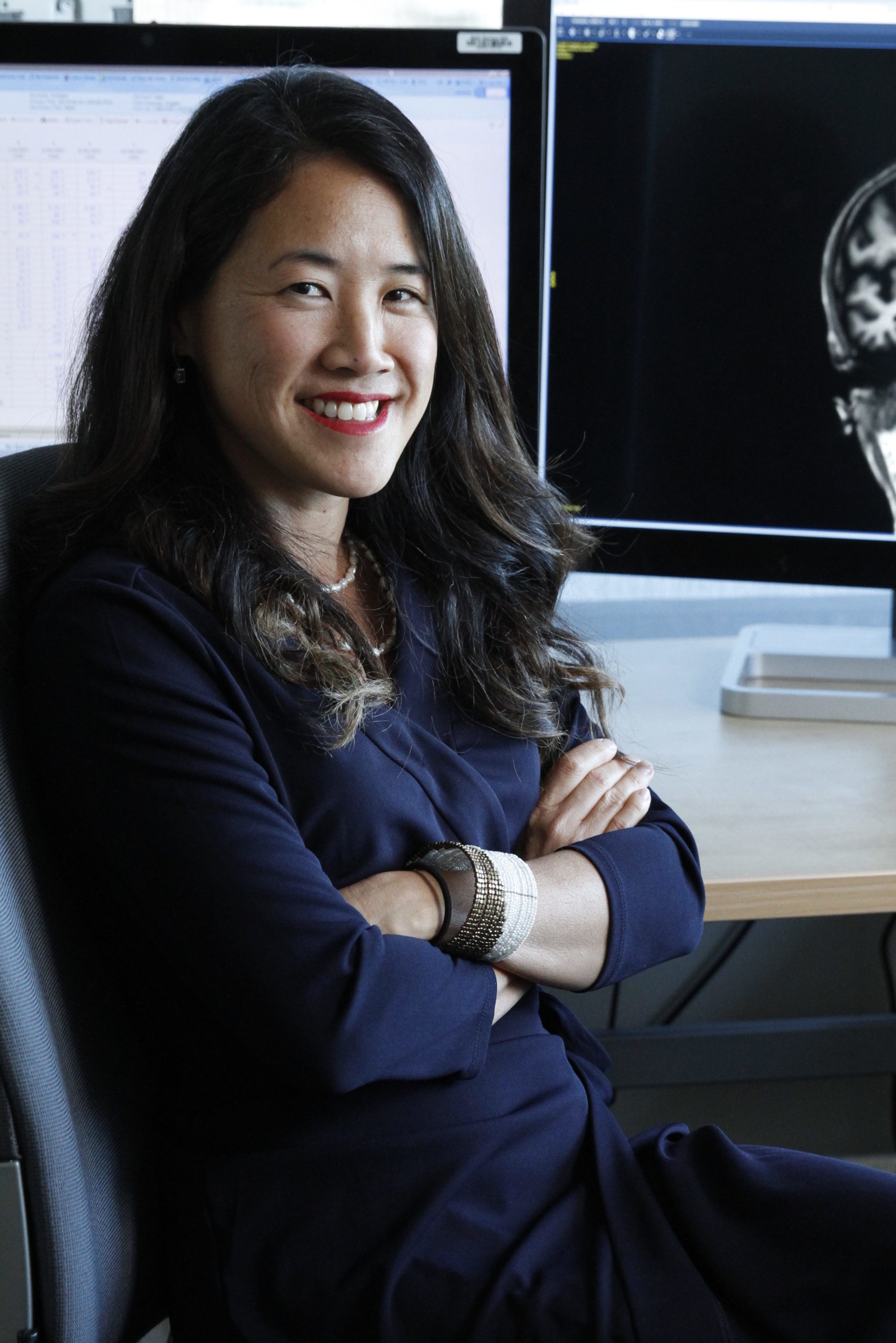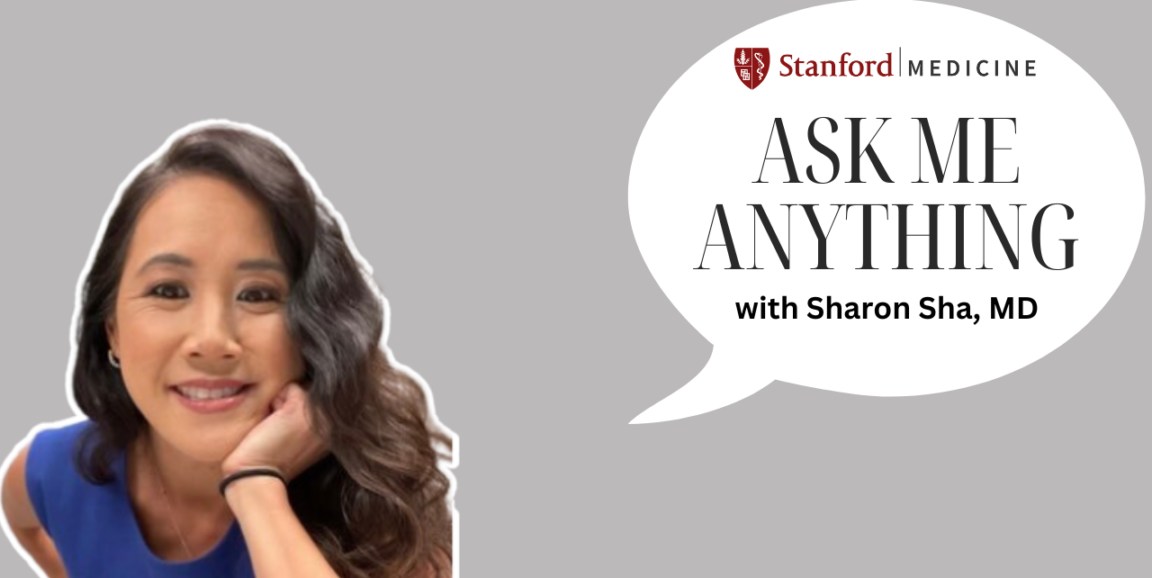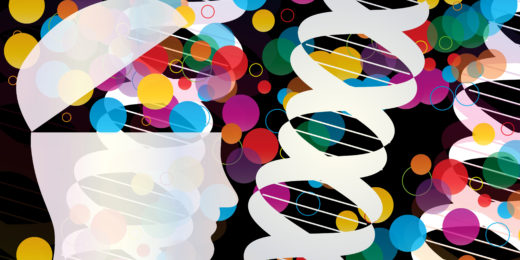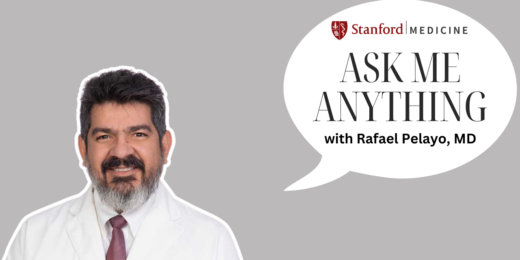When it comes to complex biology, the brain rules. To understand how the brain controls our movements, behavior, thoughts and memories -- and how that changes when things go awry -- we asked Stanford neurologist Sharon Sha to weigh in. For Ask Me Anything for Stanford Medicine's Instagram account, she spoke about all things neuro -- from how you can sharpen your mental acuity, to what happens when a memory is lost.
Sha, who specializes in caring for patients with cognitive and neurodegenerative disorders, weighed in on a multitude of brain and cognition-related questions, and even shared a peek into what it was like to work with actor Chris Hemsworth (who played Thor in several Marvel Studios "Avengers" films) on a docuseries.
Below is a compilation of the questions and answers hosted on our Instagram account. The following Q&A has been lightly edited for clarity.
What can be done to reduce the risks of developing Alzheimer's disease?

Great question! The best way to reduce the risk of developing Alzheimer's disease is to exercise.
There is a lot of data (and more to come!) that shows exercise helps stimulate the brain. Much like when we get an endorphin rush while exercising, we can create something in the body that nurtures the brain. Some scientists believe that a protein called brain derived neurotrophic factor -- or BDNF -- helps the brain and the memory center (the hippocampus), in particular.
Other ways to reduce the risk are keeping your brain stimulated, eating a Mediterranean heart-healthy diet, sleeping well and socializing.
Best advice to sharpen focus/concentration for students?
Take breaks! There is data to support the notion that even a 20-minute walk in nature helps improve concentration. The thought behind this is that the constant stimulation of technology places a high demand on our attention (emails, text messages, etc.), but disconnecting and focusing on the sights and sounds of nature improves our attention and working memory.
When a memory is lost, is there any way to bring it back?
Unfortunately, if memory is lost due to Alzheimer's disease, there is no way to bring it back. The best thing is to do all you can to reduce the risk of dementia with lifestyle measures like exercise, eating healthy, keeping your brain active, socializing, sleeping well and feeling good! Someone can use the parts of the brain that are working well for workarounds such as keeping lists, using a calendar, keeping routines, and enlisting help.
What was it like working with Thor aka Chris Hemsworth?
Chris was amazing. He is such a professional. He was a producer on a docuseries filmed for National Geographic about the potential of the human body so he would contribute great ideas and suggestions for the content. He is also very funny, though I think I'm funnier!

Are there certain foods that are better for your brain?
The Mediterranean heart-healthy diet is the best for your brain. We don't know what is in the diet that helps our brain, but likely it is the lean proteins, high amount of vegetables and fruit and few fried foods. If your culture is not Mediterranean, I usually suggest not changing your diet completely. Rather, I suggest eating healthier versions of your familiar foods, increasing vegetables and decreasing fatty foods. Unfortunately, there is no magic food or pill we can take.
If I'm forgetting passwords or forgetting why I went into a room, is this normal or is it a sign of cognitive decline?
All of us can walk into a room and forget the reason we did. This can be part of normal aging, distraction or poor sleep! It can also be part of a degenerative disease such as dementia. The pattern of symptoms and whether it is affecting your ability to function independently can help with understanding this symptom in the context of whether a dementia like Alzheimer's disease is present.
Are there any exercises or memory activities I should do with my grandma (short-term memory loss)?
What does your grandma like to do? Does she like to garden, knit, talk about old memories/photos, dance, listen to music? Let her interests guide you and encourage to her talk about them, interact with them, teach you about it! Things that stimulate her will help her keep her brain as sharp as it can be -- and teach you more about her!
How does music affect the brain?
No one really knows how it affects the brain. However, music can have strong associations with emotions that can "tag" memories very well -- such as when an old favorite song brings back memories and related feelings about the song. Because of this, I often suggest that patients with Alzheimer's disease play old, happy songs to inspire and calm us.
Does doing puzzles or other games help prevent memory loss?
Yes! But it doesn't have to be puzzles or games. Anything that stimulates your mind is good for the brain. Something that is interactive is even better for your brain!
For more Ask Me Anything content, visit related Scope stories.
Photo by alphaspirit






